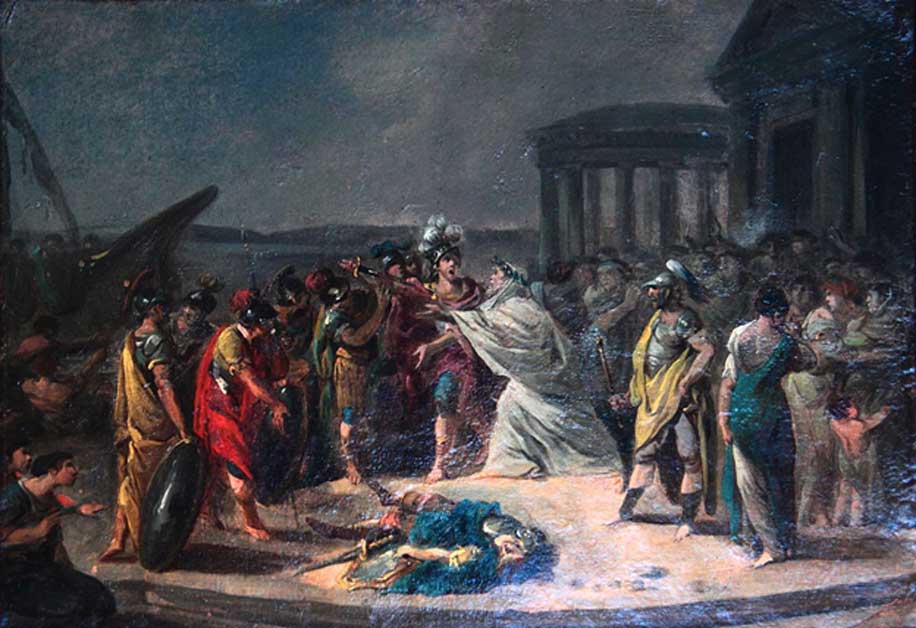
Throwing Virgins into the Sea and Other Ways to Appease the Gods: The Ancient Reasons behind Virgin Sacrifice
When the going got tough, it was believed sacrificing a virgin to the gods—by throwing them into the sea, burying them alive, or leaving them for hungry monsters—was the best plan.
Virgin sacrifice could be done for a number of widely accepted reasons: from winning a war, to appeasing an angry deity, or merely to protect architecture. For a time, the practice seemed to be widely recognized as many cultures show traces of virgin sacrifice in their mythologies and religious texts.

The Ancient Egyptians throwing a Virgin into the Nile, 1884 (Public Domain)
Gods are Listening: Hasty Promises You Shouldn’t Have Made
In Homeric legend, Iphigeneia was to be sacrificed by her father Agamemnon to appease Artemis so she would allow the Greeks to wage the Trojan War. An example of a virgin sacrifice is also mentioned in the Bible—the sacrifice of Jephthah’s daughter in Judges 11, in which Jephthah vows to sacrifice to God whatever or whoever comes to greet him at the door when he returns home if he is victorious. In the Book of Judges 11:31 in which Jephthah says, “whatever comes out of the door of my house to meet me when I return in triumph from the Ammonites will be the Lord's, and I will sacrifice it as a burnt offering." Unfortunately, when Jephthah returns from battle, it’s his virgin daughter who comes out of his door to greet him.

Jephthah’s Daughter (Public Domain)
In the 18th-century, French philosopher Voltaire noted the similarities between Jepththah and the Greek mythological general, Idomeneus, who asked the gods to calm a storm by promising that he would sacrifice the first living thing he saw upon his return. The first living thing turned out to be his young son.

The return of Idomeneus (Lena/CC BY 3.0)




